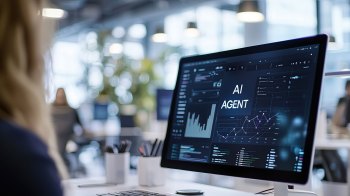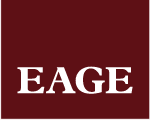Workshop 2
AI Agents Sunday, June 7th |
Convenors
- George Ghon (Capgemini)
- Lukas Mosser (Aker BP ASA)
Organised by EAGE Technical Community on Artificial Intelligence
Description
Agentic AI systems—autonomous, goal-driven software entities—are emerging as a transformative paradigm in AI deployment. At their core, agents comprise perception modules, reasoning/planning engines, memory, and action interfaces, often integrated through orchestrators or multi-agent frameworks. Effective agents require robust task understanding, context awareness, secure execution environments, and governance controls. Opportunities span automation of complex workflows, continuous problem-solving, and adaptive decision support; however, risks include hallucination-driven actions, value misalignment, security vulnerabilities, and loss of human oversight.
Adoption of agentic systems requires rethinking workflows, introducing human-agent collaboration protocols, and managing cultural change toward trust in autonomy. General-purpose “out-of-the-box” agents offer rapid experimentation but can lack domain precision, whereas domain-specific agents, though costlier to develop, deliver higher reliability in regulated or specialized contexts. Integration capabilities—via APIs, enterprise systems, IoT, and other agents—amplify impact but introduce new interoperability and security challenges.
Development paths vary: off-the-shelf frameworks enable faster prototyping, while custom builds optimize for proprietary processes. Deployment at scale demands orchestration, monitoring, and dynamic policy enforcement. Responsible AI principles must be embedded end-to-end with continuous monitoring.
This workshop will gather researchers, practitioners, and industry leaders at the forefront of agentic AI to share experiences, evaluate emerging practices, and co-develop actionable guidance for safe, effective, and scalable deployment. Through cross-disciplinary discussion, it aims to distill lessons learned, surface open challenges, and chart a path toward responsible adoption of autonomous AI agents across domains.
Sub-Topics that will be covered in the workshop:
AI
LLMs
Generative AI
AI Agents,
Responsible AI,
Agent Deployment


Participant Profile
Geoscientists and engineers who are interested in agentic AI for geoscience applications. SMEs, Data Scientists, and AI practitioners interested in sharing learnings on the adoption and development of agentic AI.
Workshop Programme
Coming Soon!
| Time | Activity |
|---|---|
| 09:30 | Welcome and workshop objectives - Andrew Ratcliffe |
| 09:35 | True-amplitude elastic AVA from acoustic FWI - John Armitage (S-cube) |
| 09:55 | Reflectivity Inversion using FWI: a step forward towards quantitative interpretation - John Brittan (TGS) |
| 10:15 | Extracting elastic AVA information from acoustic FWI via an angle-dependent density - James Cooper (Viridien) |
| 10:35 | Panel discussion |
| 10:50 | Coffee Break |
| 11:05 | Considerations on amplitudes in FWI products - Angus Lomas (BP) |
| 11:25 | Uncovering high-resolution AVA attributes via elastic multi-parameter FWI - James McLeman (DUG) |
| 11:45 | Multi-parameter visco-elastic FWI for quantitative imaging - René-Édouard Plessix (Shell) |
| 12:05 | Panel discussion |
| 12:20 | Lunch break |
| 13:30 | Welcome back - James McLeman |
| 13:35 | Orthogonal parameterizations for multiparameter elastic FWI - Allon Bartana (SLB) |
| 13:55 | Towards scalable, geologically constrained and uncertainty-enabled FWI- based quantitative inversion of subsurface properties: recent developments - Lorenzo Casasanta (Shearwater) |
| 14:15 | Extracting Amplitude Information from Seismic Data with Elastic FWI: Benefits and Challenges - Partha Routh (ExxonMobil) |
| 14:35 | Panel discussion |
| 14:50 | Coffee Break |
| 15:10 | On full waveform inversion for subsurface characterization - Espen Birger Raknes (AkerBP) |
| 15:30 | Applications of Elastic Wavefield Solutions for Pre-Carbonate Subsurface Imaging in Central Luconia, Southeast Asia - Sandeep Kumar Chandola (Petronas) |
| 15:50 | Amplitude Attributes of Full Waveform Inversion Derived Reflectivity volumes - Jean-Paul Van Gestel (BP) |
| 16:10 | Panel discussion |
| 16:25 | Final discussions and wrap-up |
| 16:35 | Workshop END |
